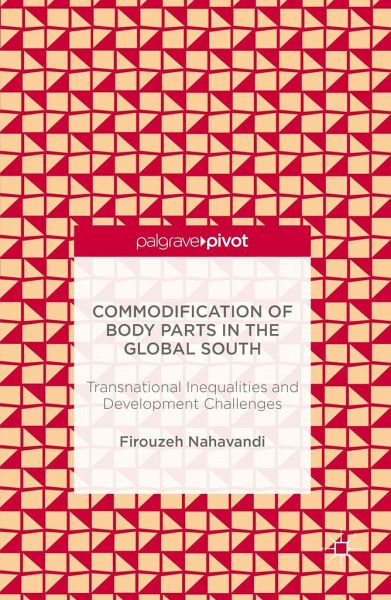
Commodification of Body Parts in the Global South
Transnational Inequalities and Development Challenges

PAYBACK Punkte
19 °P sammeln!
Thisbook proposes the introduction of a development-related perspective toscholarly critique of the human body's commodification. Nahavandi contends that the commodification of humanbody parts reflects a modern form of such well-known historical phenomena asslavery and colonization, and can be considered a new and additional form ofappropriation and extraction of resources from the Global South. Whatare the commonalities between hairtrade, surrogacy, kidney sale and attraction of brains? The author argues that these allcharacterize a world where increasingly everything can be traded or is cons...
Thisbook proposes the introduction of a development-related perspective toscholarly critique of the human body's commodification. Nahavandi contends that the commodification of humanbody parts reflects a modern form of such well-known historical phenomena asslavery and colonization, and can be considered a new and additional form ofappropriation and extraction of resources from the Global South. Whatare the commonalities between hairtrade, surrogacy, kidney sale and attraction of brains? The author argues that these allcharacterize a world where increasingly everything can be traded or is consideredto be tradeable. A world where, similar to any other goods, body parts haveentered the global market either legally or illegally. Through a series ofmultidisciplinary comparative studies, the book explores how formscommodification of the human body are fuelled by issues of poverty in theGlobal South, and inequality in transnational relations.














